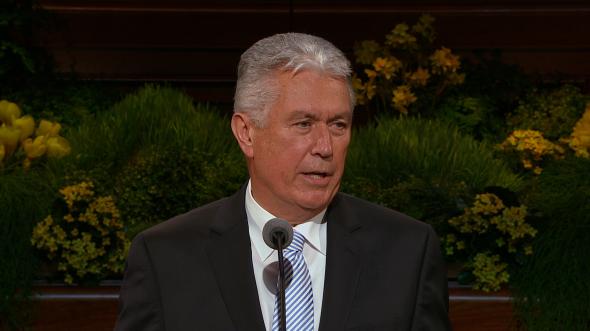
Here is one of my favorite parts:
"This type of gratitude transcends whatever is happening around us... It blooms just as beautifully in the icy landscape of winter as it does in the pleasant warmth of summer."I remember a two day hike I went on as a boy scout with my troop. We were doing some difficult climbs and practicing our repelling, and to make the trek easier we decided to bring our sleeping bags without our tents. After the first day's journey, we camped on the gentle slope of a stretch of pure granite rock. It could have been ideal -- my father and I, our group of friends, and all of us resting peacefully under the stars in their natural brilliance -- but then it began to rain! Each camper had to do what he could to waterproof his bag. I borrowed two large trash bags to cover mine, but I'm pretty sure they didn't do much. Surrounded by the sound of rain and by the cold, damp water creeping in at the seams, I found sleep impossible and was miserable through most of the night.
We got up early and hung up the bags to dry, and mine was the worst: the water ran off in a constant stream. The frigid air made packing difficult, but one of the younger adult leaders, Brother Bach gave me a hand. We squeezed all the water we could from the sleeping bag, rolled it into my backpack, and set out for civilization.
I was grateful to be moving again, and I was finally feeling warm and dry! And yet, talking it over with Brother Bach, he said he'd had a blast that night. I was confused. "Well, I was soaked, cold and wet," I said, "and could hardly sleep. Why weren't you miserable too?"
"I was also cold and wet and miserable," he replied, "but I still had a blast!"
We walked on, and I thought about his response. And I began to understand. He had had the same challenges, but he was simply the kind of person who looked at life, even the tough spots, as a wonderful adventure!
"In grief, we can still lift up our hearts in praise. In pain, we can glory in Christ’s Atonement. In the cold of bitter sorrow, we can experience the closeness and warmth of heaven’s embrace.
"We sometimes think that being grateful is what we do after our problems are solved, but how terribly shortsighted that is. How much of life do we miss by waiting to see the rainbow before thanking God that there is rain?
"Being grateful in times of distress does not mean that we are pleased with our circumstances... Being grateful in our circumstances IS AN ACT OF FAITH in God."
